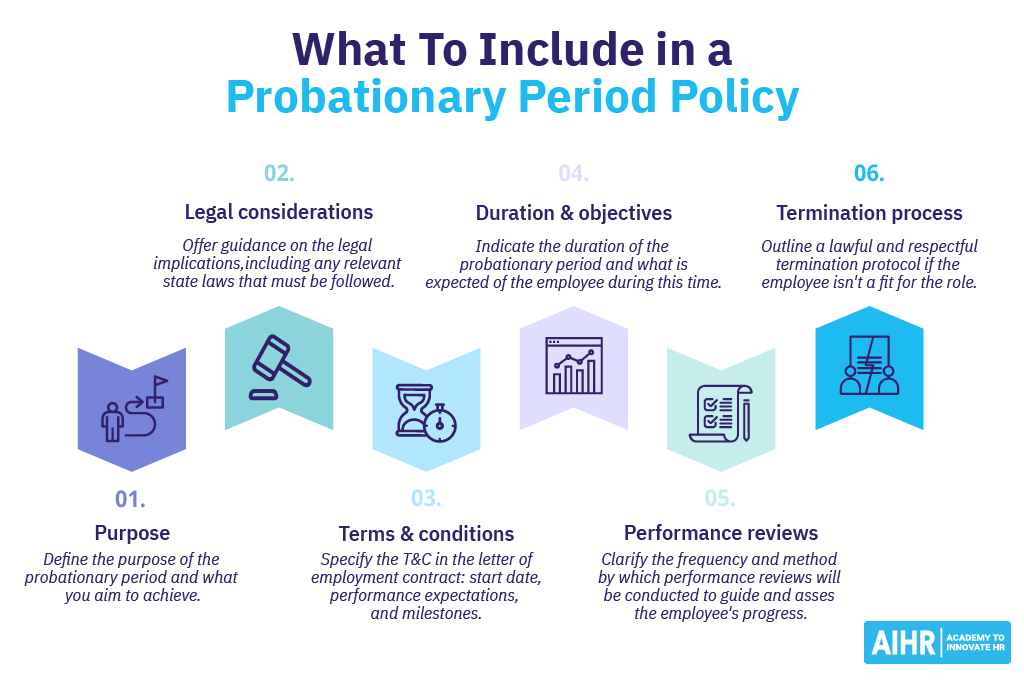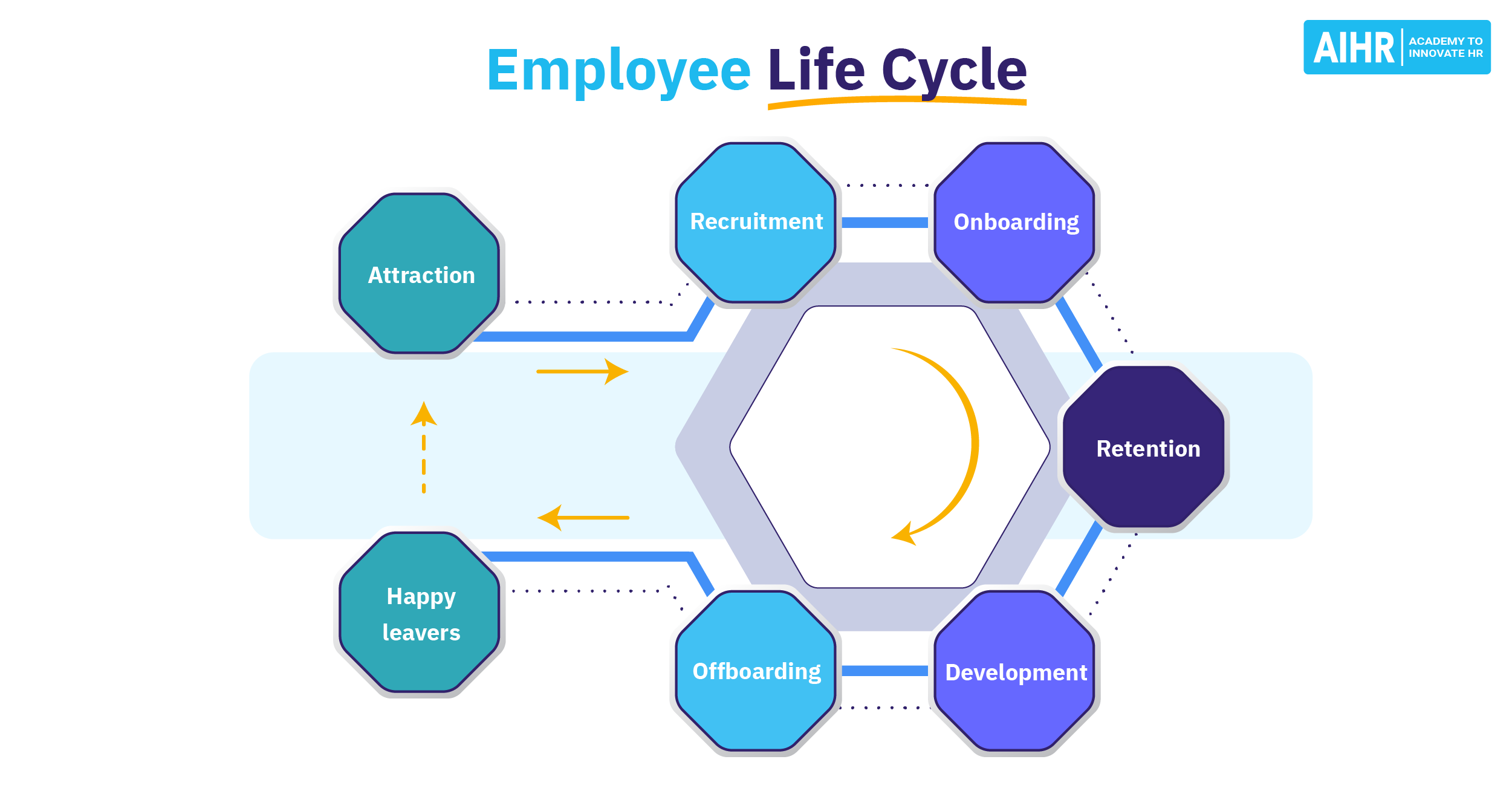Probationary Period
What is a probationary period?
A probationary period, also known as a trial or introductory period, is an initial stage of employment in which the employee is evaluated. During this time, the employer evaluates the employee’s performance and decides whether to keep them in their role or not.
This period typically lasts for three months, but it can vary anywhere between one month to six months, depending on the employer.
If the arrangement isn’t working out, either the employer or the employee can end the relationship at any time during the probationary period without giving any notice. However, if there’s an employment contract or agreement in place, it might specify the terms of the probationary period, including the notice requirements (typically 1 to 2 weeks).
Why is a probationary period important for employers?
The probationary period allows the employer to assess the new employee’s skills, knowledge, and aptitude to perform the job effectively. Below are a few examples of why the employee probationary period is important for employers:
- It gives the employer an opportunity to determine whether the new employee fits well within the company’s culture, values, and work environment
- It gives both parties a chance to make sure the job is the right fit for them
- It allows employers to identify issues with an employee’s performance early on and address them before they become bigger problems
- The probationary period at work allows employers to set expectations for their team members and provide feedback or guidance as needed.
How does a probationary period work?
A probationary period begins on the employee’s first working day and lasts for a specified duration. It usually lasts 90 days but can go up to six months.
During this time, employers should ensure that new hires have access to any necessary training or resources they need to succeed in their roles. It’s also vital to set clear expectations regarding their performance, responsibilities, and behavior during this initial period of employment.
While there’s no federal law requiring a probation period for employees, a few states, like Montana, require employers to provide new hires with a written agreement that outlines the terms of the period. Employers should also clearly communicate its details to new hires and make sure they are aware of their rights during this time.
At the end of the probationary period, employers should assess whether or not an employee has met their expectations and decide whether to continue their contract of employment or not. It’s also essential to provide feedback to employees so they can understand how they have done during this period and what areas, if any, need improvement.
HR tip
One of the best ways to help new employees succeed during the probationary period is to draft a 30-60-90 day plan. This plan outlines the responsibilities and goals for each week during the probationary period, ensuring employees understand their roles and what is expected of them, as well as providing a roadmap for success.
Employees also enjoy certain benefits and rights associated with the probationary period. These include:
- The right to receive fair and equitable treatment throughout the probationary period.
- The right to receive feedback from the employer about their performance during the period, helping them understand how they can improve.
Yet, there are certain limitations, for example:
- The employee may not be eligible for certain types of paid time off, retirement benefits, or job protection rights under the Family and Medical Leave Act (FMLA) during the probationary period.
- The employer has the right to end an employee’s employment at any time during the 90-day probationary period for any valid reason.

Probationary period policy: What to include
Structuring a well-defined probationary period policy is crucial for setting clear expectations and protecting both the organization’s and the employee’s interests. Here are some key items HR can include in the policy:
- Purpose of the policy: Before drafting the policy, employers should define the purpose of this period and what they hope to accomplish. Your organization should understand that this is a standard part of the hiring and onboarding process, as it helps assess an employee’s fit for their role and performance potential.
- Legal considerations: Employers should provide guidance on the legal implications, such as outlining any applicable state laws that must be followed.
- Terms & Conditions: Documenting everything, from the probationary period’s start date to performance expectations and milestones, is essential for creating a successful policy. This should be featured clearly in the offer letter or employment contract.
- Duration and objectives: The policy should clearly state how long the probation period will last, what is expected of the employee during this time, and how frequently reviews will take place. A typical probationary period lasts 30-90 days, with some extending to 180 days, depending on the complexity of the role.
- Performance reviews: The policy should clarify how performance reviews will be conducted and how often they will happen. This helps ensure that employees know what is expected of them and have an understanding of their progress throughout the probation period. You should also set up regular check-ins (e.g., bi-weekly or monthly) to provide feedback.
- Termination process: The policy must outline the termination protocol if the employee is deemed not a good fit for the role after this period. The process should be clear, accommodative, respectful, and follow all applicable laws.
FAQ
A probationary period typically lasts between three to six months, although it can vary significantly depending on the organization, the nature of the job, and sometimes even regional employment laws. Shorter periods of one to two months might be used for simpler roles, while more complex or senior positions might extend up to a year.
The benefits of a probationary period include allowing employers to assess a new employee’s suitability and performance while employees get the chance to adapt to their role and the company culture, demonstrating their skills and potential.







